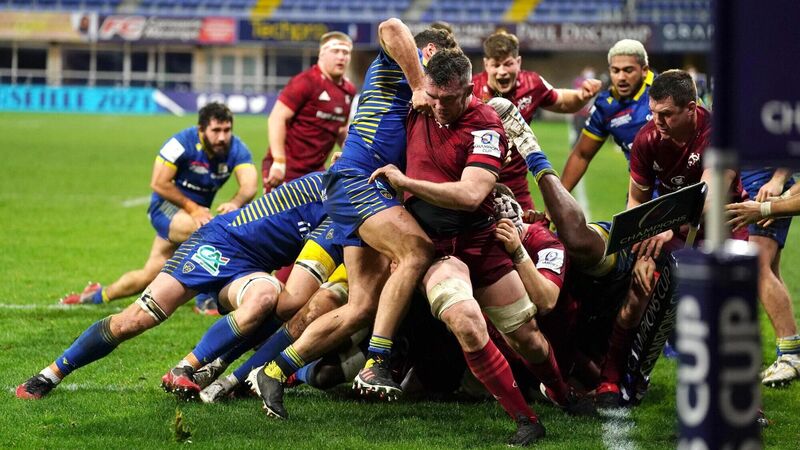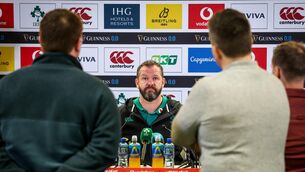Donal Lenihan: Munster must do things the hard way to end decade of hurt

Munster players, led by Peter O'Mahony, push over for a try against Clermont Auvergne at the Stade Marcel-Michelin last December. Photo by Julien Poupart/Sportsfile
To domestic matters first. After a decade spent in the bridesmaid’s slot when the silverware is being presented at the end of the season, Munster find themselves within 80 minutes of lifting a trophy. They have been here before, in the 2015 and 2017 seasons, but on both occasions finished a poor second to Glasgow Warriors and Scarlets in the Guinness PRO12 final.
To take that final step, Munster will have to find a way to defeat perennial rivals Leinster, who have already beaten them three times since rugby resumed last August. They prepare for that showdown in the knowledge that performance levels will have to improve dramatically from their display in Friday’s less-than-convincing win over Connacht.










